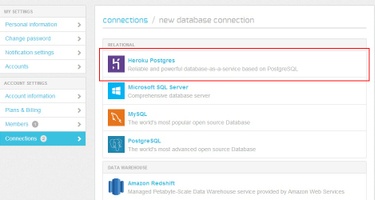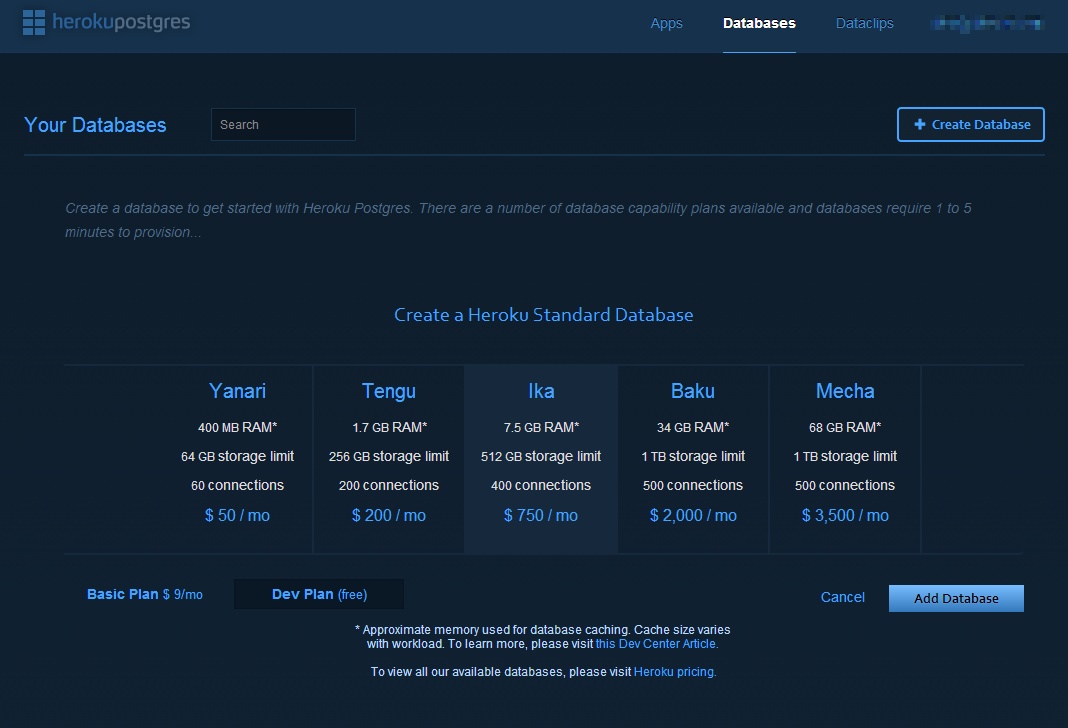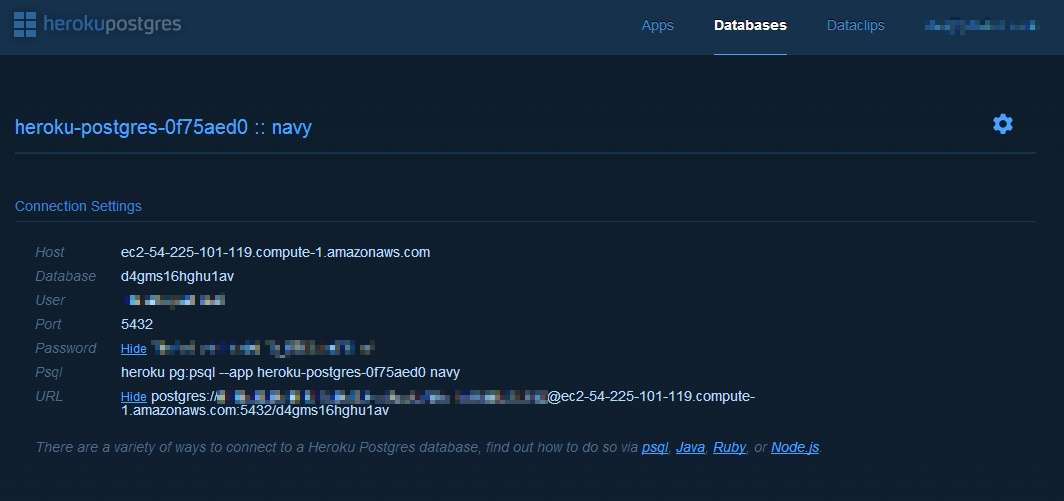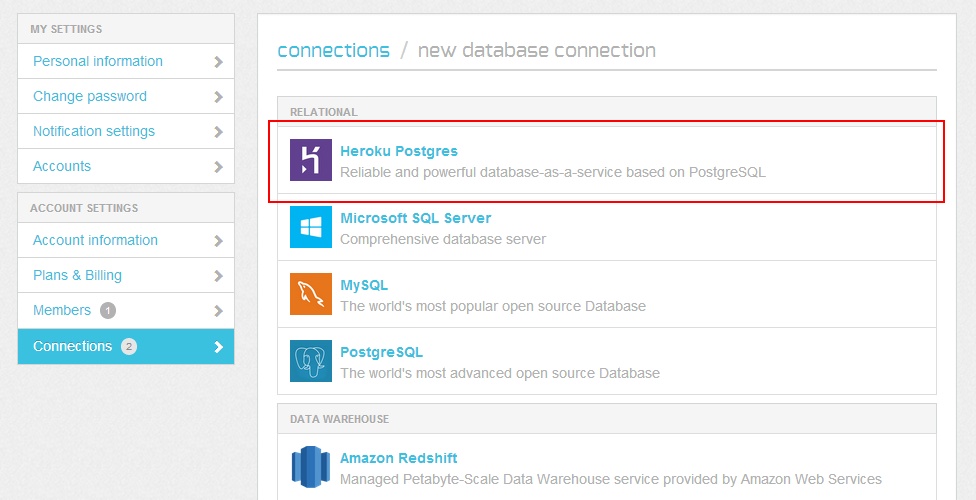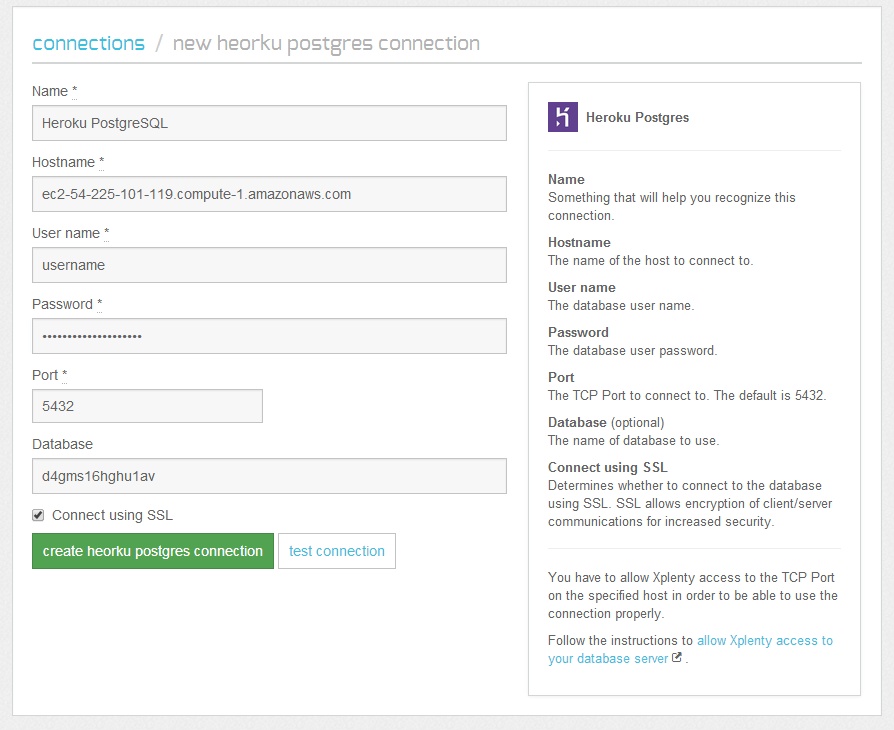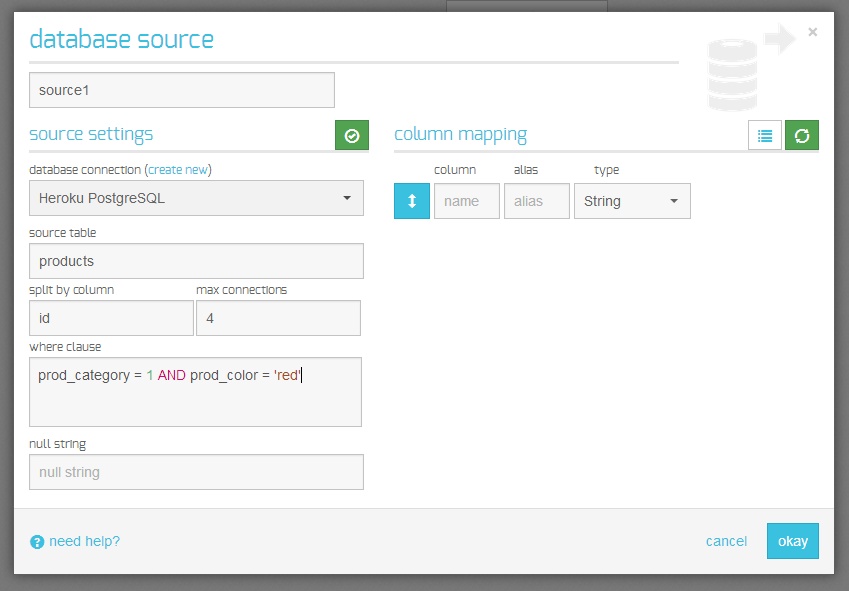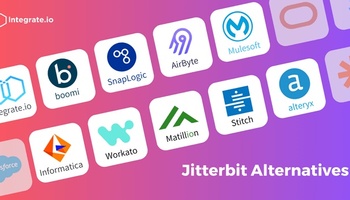What can you do with data collected on Heroku PostgreSQL? How will you analyze it and integrate it? With Integrate.io, of course! Integrate.io lets you connect to a PostgreSQL database on Heroku, design a dataflow via an intuitive user interface, aggregate the data, and even save it back to PostgreSQL on Heroku or other databases and cloud storage services. Read on to learn more about the benefits of Heroku Postgres and how to integrate Heroku PostgreSQL with Integrate.io.
Table of Contents
- What Is Heroku Postgres?
- Integrating Heroku PostgreSQL with Integrate.io
- How Integrate.io Can Help
What Is Heroku Postgres?
The Heroku platform was launched in 2007. It was one of the first cloud platforms designed to help developers deploy, manage and scale applications. When it was originally launched, it only supported the Ruby Programming language. However, the platform has evolved over the last 14 years to support eight programming languages, including:
- Ruby
- Node.js
- PHP
- Go
- Clojure
- Java
- Python
- Scala
Essentially, the Heroku platform is a container-based cloud Platform where applications can be created inside of containers or "dynos." Every application created on the Heroku platform requires a database. The default database within Heroku is Heroku Postgres.
Related Reading: The Ultimate Guide to Heroku Postgres
The Benefits of Heroku Postgres and Its PostgreSQL Based Database
The Heroku Postgres database is an open-source SQL database that runs on PostgreSQL. Ultimately, Heroku Postgres is the chosen database among many developers as it makes building, scaling, and maintaining databases extremely accessible and negates any worries surrounding infrastructure concerns.
Another draw for developers when it comes to the Heroku Postgre database is the powerful tools it provides including, forks, followers and dataclips.
- Forks: Through the forking tool on Heroku Postgre, databases can be cloned with just a single command.
- Followers: Through the followers tool on Heroku Postgre, the process of setting up and maintaining replication databases is made much easier.
- Dataclips: Through the dataclips on Heroku Postgre, reports can easily be created against live production data.
Related Reading: The Complete Guide to Using Heroku Postgres
Integrating Heroku PostgreSQL with Integrate.io
Heroku Postgres has proven itself as a reliable and powerful PostgreSQL based database. The powerful tools of Heroku Postgres are strengthened further when Heroku PostgreSQL is integrated with an ETL-based platform like Integrate.io. The following outlines how to integrate Heroku PostgreSQL with Integrate.io, providing instructions for both the Heroku and Integrate.io platforms.
Heroku Instructions
- Login to Heroku or signup for free if you don't have an account yet.
- Go to 'Databases' and open the relevant database. If you don't have a database yet, you can create one for free with the dev plan (bottom screen when creating a new DB).
3. After opening the relevant database, take a look at 'Connection Settings' and note down the host, database, user, port, and password.
Integrate.io Instructions
- Login to your Integrate.io account or create one for free.
- Click the user image at the top right and choose 'Account settings.
- Click the 'Connections' menu on the left, 'New Database Connection,' and choose 'Heroku Postgres.'
4. Fill in all the Heroku PostgreSQL connection details as noted down in the previous section.
5. Click the 'test connection' button to make sure that the database integration works. If it fails, then one of the connection details is incorrect. Go back to Heroku and re-check all the PostgreSQL database details.
6. Click 'Create Heroku Postgres connection.'
7. To define your new data flow, create a new Integrate.io package via 'My Packages' - 'New Package'.
8. Click the 'New Source' button at the top and choose 'Database.'
9. Click the component that was just added - the 'database source' dialog should appear. Choose the Heroku PostgreSQL connection in the 'database connection' dropdown and enter the following info (also see database source help):
- Source table - relevant DB table name
- Split by column - primary key column, which should be used to split the import workload over several tasks/connections, e.g., 'id.'
- Max connections - number of tasks/connections which will be used to import the data, e.g. 4
- WHERE clause (optional) - WHERE clause to run to limit which data should be imported, e.g. prodcategory = 1 AND prodcolor = 'red'
- A null string (optional) - string to replace null values in char columns. Nulls in numeric columns are not replaced by this value.
10. Click the green auto-detect schema button on the right (the circling arrows) to fill the schema automatically. You can also fill or edit it manually.
11. Click 'okay' to close the component.
12. Add components back in the package screen to process the data as necessary.
13. To save the processed data back to a Heroku PostgreSQL database, add a database destination component. Note that you can also store the dataflow output to MongoDB, delimited files, or integrate with other services using the relevant destination component.
14. Click the destination component. Choose the relevant connection (probably a different one than the source connection) and enter the target table.
15. All done! Setup a cluster to run the job. Please refer to the documentation for many more Integrate.io features available for easy data integration.
For more information on Integrate.io's native Heroku Postgres connector, visit our integration page.
Related Reading: How Integrate.io Simplifies Heroku PostgreSQL Data Integration
How Integrate.io Can Help
Integrate.io is a powerful and user-friendly ETL platform that simplifies data integration through its straightforward drag-and-drop interface. While integrating data from the Heroku Postgres database can be challenging, it doesn't have to be. With Integrate.io on your side, integrating data between Postgres and data warehouses, relational databases, or other applications is made simple.
Ultimately, the no-code and low-code tools on the Integrate.io platform provide the perfect solution for Heroku PostgreSQL data integration. Data can be moved to and from PostgreSQL in just a few clicks with a little help from Integrate.io. Are you ready to discover the benefits Integrate.io can provide when it comes to your Heroku Postgres data integration needs? Contact our team today to schedule a 14-day demo or pilot and see how we can help you reach your goals.

